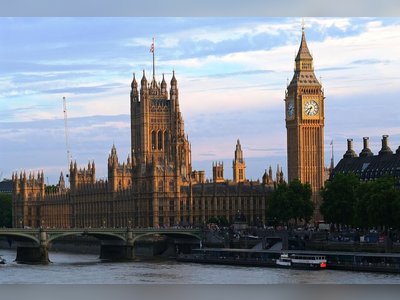Trump Declares “Full Force” Deployment Against Antifa, Orders Troops to Portland
President authorizes military intervention to defend ICE facilities amid claims of domestic terrorist threats
President Donald Trump has announced the deployment of U.S. troops to Portland, Oregon, declaring the city “war ravaged” and authorizing the use of “full force, if necessary” to protect Immigration and Customs Enforcement (ICE) facilities from what he termed attacks by Antifa and other domestic extremists.
In a post on his social media platform, Trump directed Secretary of Defense Pete Hegseth to dispatch “all necessary Troops to protect.
any of our ICE Facilities under siege” and asserted that the federal positions were being targeted by “domestic terrorists”.
He stated that the deployment was made at the request of Homeland Security Secretary Kristi Noem.
The administration’s framing attempts to position the move as a necessary act of national security.
Oregon Governor Tina Kotek immediately pushed back, stating that the city faces no crisis warranting a federal military presence.
She said that “there is no mission for them right now” and insisted that local authorities are fully capable of maintaining order.
Portland Mayor Keith Wilson also rejected the justification, saying no lawlessness or violence justified such an intervention unless the federal government itself acts to provoke conflict.
Trump’s order echoes previous federal deployments in cities such as Los Angeles, Washington, D.C., and Memphis under the banner of public safety and anti-terrorism.
Earlier this month, he signed an executive order formally designating Antifa as a domestic terrorist organization—though the enforceability and legal implications of that designation remain unsettled.
Legal scholars warn that the deployment raises serious constitutional and statutory questions, particularly under the Posse Comitatus Act, which restricts the military’s role in domestic law enforcement.
Analysts have emphasized that while federal forces may defend property or federal sites, they lack authority to arrest or police civilians absent specific statutory mandates.
As of now, it remains unclear which mix of military units—National Guard, active duty troops or federal forces—will be used, how they will be armed, or whether lethal force is authorized.
The Pentagon has not confirmed troop movements.
The confrontation is already drawing strong criticism from local, state, and legal actors who see this as an escalation of federal authority into municipal affairs.
With this move, the Trump administration intensifies its posture against domestic dissent under its security agenda, setting the stage for high-stakes legal and political confrontations over executive power, civil liberties, and the definition of internal “threats”.
In a post on his social media platform, Trump directed Secretary of Defense Pete Hegseth to dispatch “all necessary Troops to protect.
any of our ICE Facilities under siege” and asserted that the federal positions were being targeted by “domestic terrorists”.
He stated that the deployment was made at the request of Homeland Security Secretary Kristi Noem.
The administration’s framing attempts to position the move as a necessary act of national security.
Oregon Governor Tina Kotek immediately pushed back, stating that the city faces no crisis warranting a federal military presence.
She said that “there is no mission for them right now” and insisted that local authorities are fully capable of maintaining order.
Portland Mayor Keith Wilson also rejected the justification, saying no lawlessness or violence justified such an intervention unless the federal government itself acts to provoke conflict.
Trump’s order echoes previous federal deployments in cities such as Los Angeles, Washington, D.C., and Memphis under the banner of public safety and anti-terrorism.
Earlier this month, he signed an executive order formally designating Antifa as a domestic terrorist organization—though the enforceability and legal implications of that designation remain unsettled.
Legal scholars warn that the deployment raises serious constitutional and statutory questions, particularly under the Posse Comitatus Act, which restricts the military’s role in domestic law enforcement.
Analysts have emphasized that while federal forces may defend property or federal sites, they lack authority to arrest or police civilians absent specific statutory mandates.
As of now, it remains unclear which mix of military units—National Guard, active duty troops or federal forces—will be used, how they will be armed, or whether lethal force is authorized.
The Pentagon has not confirmed troop movements.
The confrontation is already drawing strong criticism from local, state, and legal actors who see this as an escalation of federal authority into municipal affairs.
With this move, the Trump administration intensifies its posture against domestic dissent under its security agenda, setting the stage for high-stakes legal and political confrontations over executive power, civil liberties, and the definition of internal “threats”.











